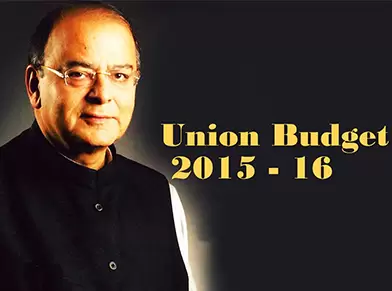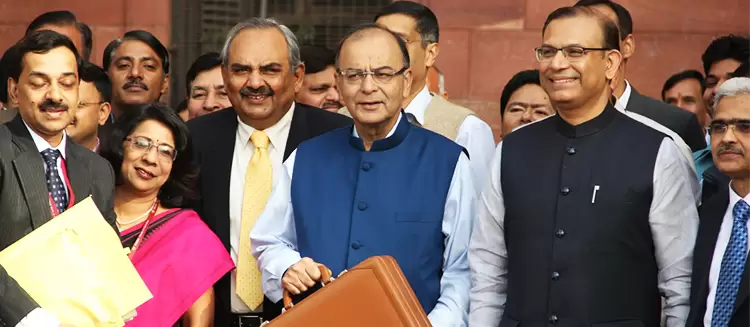Mr. Getamber Anand, President – CREDAI National
Post your Requirement
In this year’s Union Budget, our Finance Minister has taken the right steps to boost housing and ensure that ‘Housing for All by 2022’ becomes reality. CREDAI welcomes the announcement, on the supply front for Private sector’s participation and housing for all by 100% income tax exemption on such houses besides the MAT 30 sq m in metros and 60 sq m in non-metros. This will encourage the private sector to reach these areas that accommodate about 90% of the shortage. 100% exemption will actually increase the IRRs on such ventures. On the enabling side to the home buyers, the increment of a deduction of INR 50,000 on the home loan for a house of INR 50 lakh is a very big attraction. Moreover, there will be a net to net saving of 50,000 rupees a year for such home buyers. Considering there has been a 100% exemption of service tax on such houses as well. The increase of deduction on rent paid on a house from INR 24000 to INR 60,000 will also result in a saving of about INR 12,000 to INR 13,000 a year.
It is overall a very positive budget for the real estate sector and CREDAI is certain that this will spur the market and induce the home buyer who has been waiting ever since for some special incentives to actually be able to buy a house. Best part is that there is a timeline fixed for delivery of such affordable houses. All we ask for now is speeding up of the approval process as the whole project needs to be delivered in a time frame of about 3 years. So a single window clearance system of course would be a big enabler. Now the next task for CREDAI is to convince the state urban local bodies because by-laws are a state subject to increase the densities in their by-laws, to reframe the method of calculation of densities so that smaller units can be made in all projects.
Another important point is the rationalization of the income tax act and small pain-points which existed earlier and were contrary on the government’s claim of ‘ease of doing business’ such as excise on RMC which is for captive use, has been positively addressed. This shows the government’s intent to actually make ease of doing business a reality. So rationalization of the entire tax act will also be a big boost to the sector to step up supply of affordable housing.
Mr. Abhishek Lodha, Managing Director, Lodha Group:
“It is a thoughtful Budget, which has taken into account realities of global and Indian conditions. The focus on rural economy will help rekindle demand in rural India and enable stronger, more sustainable economic growth for the entire country. At the same time, the finance minister’s idea to retain a fiscal deficit target of 3.5% is commendable. It will not only enhance India’s credibility amongst the global investor community but also open doors for the RBI to consider lowering interest rates.
The focus on affordable housing will give much-needed impetus to develop greater number of affordable housing projects across the country, thus, directly aligning the agenda with the prime minister’s vision of ‘Housing for All’. Increasing the limits on interest deduction on homes costing less than Rs 50 lakh and removing the Dividend Distribution Tax on REITs, both are welcome measures which will help boost the attractiveness of India’s housing sector.
We welcome the Budget and think that it will pave the way for India to continue being the fastest growing major economy in the world.”
Rohan Bulchandani – Co-Founder & President REMI
The Union Budget 2016 outlines infrastructure and skill development within the 9 pillars of the budget. There has been a tremendous effort towards boosting the demand side of the equation by a thrust on infrastructure spending and on improving investment in the real estate sector by the abolishment of the DDT on REITs. The allocation of Rs.2.18 lakh crores towards improving connectivity with railways and the road construction target is an additional boost to the infrastructure segment. The 100% deduction on profits for affordable homes up to 30 sq meters for metros and 60 sq meters for non-metros, service tax exemption on construction of affordable homes and an additional Rs.50 thousand deduction for buyers on homes of less than Rs.50 lakhs is a positive step towards the governments ‘Housing for All’ mission. Further, the budget has provided a necessary thrust towards the skill development of 1 crore youth under the PMKY, which is essential to meet the development requirements of the economy.
Chintan Sheth, Director, Sheth Corp
“The budget 2016 was supposed to be a very crucial affair for the realty market. There were huge expectations from the Finance Minister Mr Arun Jaitley but the result was a mixed-bag if the real estate industry was considered” reckons Mr Chintan Sheth, Director, Sheth Corp.
Kishor Pate, CMD – Amit Enterprises Housing Ltd.
This Budget could have done a lot more for the real estate sector. However, there were some positives. The fact that the annual housing rent reduction limit has been increased from Rs. 24000 to Rs. 60000 could lead to an almost immediate uplift for rental housing across the major cities. This can also potentially encourage the sentiment for home ownership in the long run.
Also, first-time home buyers have been given the benefit of an additional deduction of Rs. 50000 on home loan interest for loans not exceeding Rs. 35 lakh, where the value of the house is no more than Rs. 50 lakh. This will result in improved home buying sentiment in smaller cities with lower housing costs, such as Pune. An improvement in sentiment will also be seen in the cheaper far suburbs of the metros.
However, this deduction is not sufficient to increase the sentiment much for first-time home buyers in the central parts of the metros like Mumbai, where housing prices are exceedingly high and such an exemption makes little to no difference in the burden on home buyers.
The fact that the market indices took a nosedive immediately after the budget announcement more or less reflects the way sentiment in the housing sector has gone. However, if the RBI announces a cut in interest rates on the heels of the reduced fiscal deficit announced by the Finance Minister, it could be a day saver.
Arvind Jain, Managing Director – Pride Group:
Budget 2016-17 was far below expectations. Some leeway has been given to first-time home loan borrowers, but the relief will not boost demand in the metros. That said, service tax has been exempted for developers who are focused on constructing affordable housing with unit sizes not exceeding 30 square meters in the larger cities and 60 square meters in the smaller cities. This is a significant plus, and in line with the incumbent Government’s intention to boost affordable housing.
Allocation to MNREGA and irrigation activities have been stepped up, so it is logical to expect rural income to rise from this year onward. This can positively affect rural consumption story and boost the growth of smaller towns. Encouragingly, Rs. 1500 crore has been allocated for the moderation of land records in the Digital India campaign, which will definitely have a positive impact on transparency in the real estate sector.
On the retail front, permitting seven days of operation for small and medium-sized shops in the unorganized retail segment will allow them to compete more effectively with malls. This will boost the demand for retail stores on high streets significantly.
The plans to revive inoperational civil airports in partnership with their States with a rather small allocation of Rs. 100-150 crore per airport can have positive implications for the real estate development in these cities. It will boost infrastructure, and airports are also know influencers of demand for all categories for real estate.
All in all, this budget was exceedingly cautious and not enough to infuse any significant doses of vibrancy into the real estate sector.
Mr. Kapil Wadhawan, CMD, DHFL
This year’s union budget has been encouraging for the housing finance sector and the overall economy. The proposal to introduce 100% deduction to undertakings for construction of affordable housing will help us in realizing honorable PM’s “Housing for all by 2022” scheme.
The proposal to introduce guidelines for renegotiation of PPP contracts and reform dispute redressal mechanism will encourage private participation in the development of affordable housing projects and road infrastructure.Decision to exempt REITS from DDT is also a welcome move. This will ensure positive movement on real estate projects and will help in bringing the sector on a sustained growth path.
DHFL had recommended empowering the customer for greater affordability. In this context, the decision to give additional exemption of Rs 50,000 for housing loan upto Rs 35 lakh sanctioned in 2016-17 for 1st time home buyer provided the cost of house is not above Rs 50 lakh is praiseworthy and will definitely ensure that more Indians will fulfill their dream of owning a home of their own.
The decision to improve the ease of doing business in India by deepening corporate bond market and announce initiatives to reinvigorate private sector has come at the right time. This coupled with reduction in corporate tax rates from 30% to 29% from FY18 for companies with turnover less than Rs.5 cr will boost the SME sector and help in economic growth.
DHFL welcomes government’s commitment to boost road infrastructure and address rural distress by skill development of rural population, allocating funds for MGNREGA scheme and providing support to agriculture. We are of the view that this year’s budget will enable the Indian economy to withstand adverse global pressure and move on the road to a more balanced, sustainable and inclusive growth. We will remain an attractive destination for investment over the medium and long term.
We also look at this Budget as one which has been quite responsible on the deficit and borrowings. Coupled with fall in crude prices which is a major input cost in our system, we can safely bet on inflation remaining benign. We see a very positive move on interest rate front as well as on bond market that will give a great fillip to financial services sector.
Deepak Joshi, President and Chief Business Officer, Religare Housing Development Finance Corporation Ltd
This budget is well balanced as it is focused on ease of doing business, Make in India, infrastructure and social sectors. The budget has laid out a clear roadmap to give impetus to Pradhan Mantri Avas Yojna(PMAY)-Mission Housing for all by 2022 by announcing tax sops for both individuals and developers for affordable housing sectors. Additional tax rebate of Rs 50000 to first time home buyers, 100% deduction of profit allowed to developers for construction of affordable housing and exemption of service tax for construction of housing units upto 60 sqmt is definitely going to contribute on demand and supply side of affordable housing.
























Post A Comment